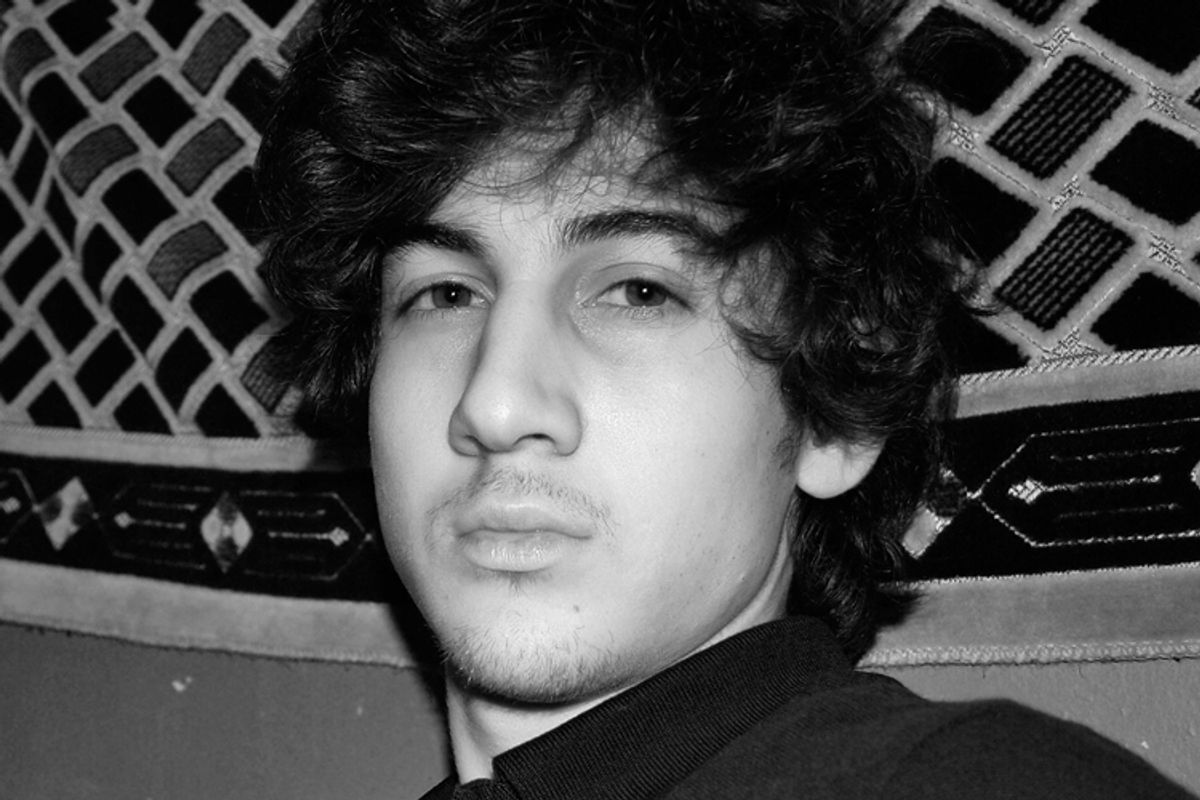On June 11, 2001, the federal government put Oklahoma City bomber Timothy McVeigh to death. “Today, every living person who was hurt by the evil done in Oklahoma City can rest in the knowledge that there has been a reckoning,” President George W. Bush declared.
Actually, some of McVeigh’s victims can’t rest in the knowledge that the government took his life. Ditto for the parents of an eight-year old killed in the 2013 Boston Marathon bombing, who have pleaded with federal authorities to spare the death penalty for convicted murderer Dzhokhar Tsarnaev.
You rarely hear voices like these amid the drumbeat for capital punishment, which stresses victims’ psychological need for “closure” after losing a loved one. But if we listened more closely, we would see that the victims themselves—like Americans overall—are deeply divided on the issue. And we’d question why one victim’s wish for a killer to die should take precedence over another’s desire to see him live.
Victims’ suffering and loss lay at the heart of the death-penalty argument in the Oklahoma City attack, which marked its 20th anniversary last Sunday. In the sentencing phase of McVeigh’s trial, jurors heard testimony from 26 relatives of people who were killed in the attack plus three injured survivors. “There are 168 people, all unique, all individual,” the prosecution declared, recounting the death toll. “All had families, all had friends, and they’re different.”
But the families differed about whether McVeigh should get the death penalty, too. Some said that death was too light a penalty for McVeigh, who would suffer more if he was forced to spend the rest of his days in prison. Others said that taking a life—even of someone as evil as McVeigh—was simply wrong.
Their leading voice was Bud Welch, who lost his 23-year-old daughter Julie in the bombing. During the first month after that, Welch recalled, he wanted McVeigh and his accomplices to be “fried.” But then he remembered Julie’s opposition to the death penalty, and started to campaign against it.
While Timothy McVeigh was strapped to a gurney in an Indiana prison, waiting for the lethal injection that killed him, Bud Welch was protesting outside. Since then, he has campaigned against capital punishment in 47 states; he has also continued to maintain a friendship with McVeigh’s father, whom he met three years after the bombing. In short, fighting the death penalty has become Bud Welch’s way of keeping his daughter’s memory alive.
To be sure, most family members of the murdered Oklahoma City victims insisted that McVeigh should die, too. Ten of them watched his execution at the limited spectators’ space in the prison; dozens of others viewed it back in Oklahoma via closed-circuit television, which was provided by federal authorities so that more victims could witness it.
But in Boston, a few days ago, Bill and Denise Richard marked the two-year anniversary of that city’s bombing by pleading for federal authorities to spare the life of the man who killed their eight-year-old son Martin. A death sentence for Dzhokhar Tsarnaev would inevitably bring many years of appeals, the bereaved parents wrote, which would prolong rather than relieve their own suffering.
Then a newlywed couple who each lost limbs in the attack also asked prosecutors to take capital punishment off the table in sentencing trial of Tsarnaev. “In our darkest moments and deepest sadness, we think of inflicting the same types of harm on him,” Jessica Kensky and Patrick Downes admitted. “However, we must overcome the impulse for vengeance.”
So do we all. Executing Timothy McVeigh didn’t avenge the 168 lives he destroyed; it simply destroyed another life, leaving two more parents grieving for their lost son.
Let’s not make the same mistake with Dzhokhar Tsarnaev. His victims lost more than the rest of us can possibly understand. But don’t pretend that killing Tsarnaev will bring them justice, if they say the opposite. There’s no justice in that.
Jonathan Zimmerman is a professor of history and education at New York University. He is the author of “Too Hot to Handle: A Global History of Sex Education,” which was published last month by Princeton University Press.

Shares